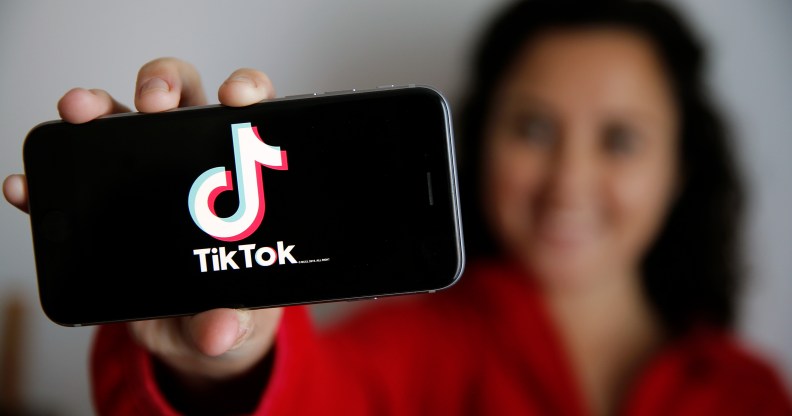TikTok admits it censored LGBT users in ‘wrong’ attempt to tackle online bullying

TikTok has admitted to censoring posts from users it considered “vulnerable”, including LGBT+ people and people with disabilities. (Chesnot/Getty Images)
TikTok has admitted that in its early days it censored posts by users it deemed “vulnerable” in a misguided attempt to prevent online bullying.
Documents obtained by the German site netzpolitik.org from an anonymous source at the Chinese-owned company showed that accounts and posts from LGBT+ people, body positive advocates and people with disabilities were being limited in their reach, regardless of content.
The section in the moderate rules was titled: “Imagery depicting a subject highly vulnerable to cyberbullying.” It defines these “vulnerable” people as “susceptible to harassment or cyberbullying based on their physical or mental condition”.
The company had a blanket rule for users with disabilities, which meant that their accounts were marked as “risk 4” and were only visible in their home countries.
For specific people considered especially “vulnerable”, the implications were more extreme.
When their videos reached 6,000 to 10,000 views, moderators marked them as “Auto R” meaning that their videos would never appear in the “for you” feed on the app, severely limiting their reach.
Guidelines for users who this might apply to include people with Down Syndrome, autism of facial disfigurements. The source providing the documents noted that it was unclear how moderators were supposed to decide if, for example, a user was on the autism spectrum from 15 seconds of video.
Netzpolitik.org reported that on the list of “especially vulnerable” people whose views were restricted, a “striking number show a rainbow flag in their biographies or describe themselves as lesbian, gay or non-binary”.
A spokesperson for TikTok told the German site that the rules were created “at the beginning”, and that they had now been replaced.
She added: “This approach was never intended to be a long-term solution and although we had a good intention, we realised that it was not the right approach.”
In a follow-up statement to The Guardian, TikTok said: “Early on, in response to an increase in bullying on the app, we implemented a blunt and temporary policy.
“While the intention was good, the approach was wrong and we have long since changed the earlier policy in favour of more nuanced anti-bullying policies and in-app protections.”
However, netzpolitik.org reported that documents showed the exclusionary policies were in place until at least September 2019.
Earlier this year, it was revealed that TikTok had been censoring LGBT-positive content in conservative countries, even if homosexuality had never been illegal there.

